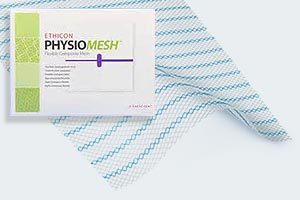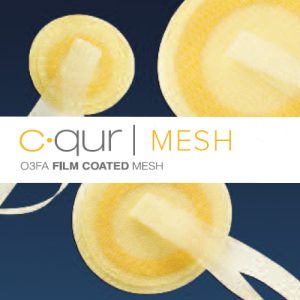Millions of Americans annually rely on medical devices to either save their lives or improve the quality of their lives. While most medical devices perform properly and provide doctors with the means to maintain their patients’ quality of life, many devices fail and, either do not help the patient, or actually cause further harm. According to a May 2016 article in The Expert Institute, the FDA each year receives thousands of reports of deaths, injuries, and malfunctions associated with medical devices.
Surgical mesh is a commonly used type of medical device that has, in some cases, had adverse effects on patients. Hollis Wright is currently reviewing claims involving complications with two types of flexible, composite surgical mesh devices. Both mesh devices that Hollis Wright is currently investigating were recalled by the products’ manufacturer, not the FDA. Both products also were introduced via the controversial 510(K) Premarket Notification Program, not the FDA’s more stringent Premarket Approval Process (PMA).
The two surgical mesh devices for which Hollis Wright is currently reviewing claims are as follows.
- The Atrium C-Qur mesh is used in surgeries involving hernia repair, chest wall repair and surgical wound repair.
- Physiomesh, manufactured by Ethicon (a Johnson & Johnson subsidiary), is used in laparoscopic surgery to repair hernias, or tissue breakthrough, in the abdomen wall.
A CNN Medical Producer recently noted that most of the medical devices recalled between 2005 and 2009 did not go through the FDA’s PMA program but were cleared through the less rigid 510(K) Premarket Notification program. Link here. PMA is a result of the 1976 Medical Device Amendments, which were added to the FDA’s Food, Drug, and Cosmetic Act. To have a device approved, the applicant or manufacturer supplies the FDA with a “full statement” of what the device entails, including packing, manufacturing, and processing. The FDA also requires samples of device components and a sample of the proposed labeling. The 510(K) process allows a device manufacturer to bypass the thorough PMA process if the proposed device is substantially equivalent to another product that was approved through the FDA’s PMA. This, in essence, allows the product to be used on patients without any trials or testing based solely on the fact that it is similar to another approved product.
Both composite 510(K)-approved mesh devices, Atrium C-Qur and Ethicon Physiome sh, are made of synthetic resin called polypropylene. Synthetic mesh has become more common in hernia and tissue repair, as sutures are more likely to lead to infection, pain, and a slower recovery. However, both are causing an increase in hernia recurrence, requiring further surgery. This completely defeats the purpose of mesh being safer, as many patients are facing additional surgery, missed work, and an increase in medical costs.
Patients who have been treated with either of these mesh devices may experience abdominal pain, bowel adhesions, infections, ulcers or perforations, mesh failure, and require revision surgery. If you or someone you know has had complications related to surgical mesh for ventral hernia repair, chest wall repair or surgical wound repair, please know the skilled attorneys at Hollis, Wright & Clay, P.C. are able to assist you in securing the compensation to which you may be entitled.
Hollis Wright also handles claims for a host of other medical devices, including problems that arise due to hip replacement surgery. You may call us for a free and confidential consultation at 1-844-LAW-TALK or 205-324-3600.
 Alabama Injury Law Blog
Alabama Injury Law Blog



